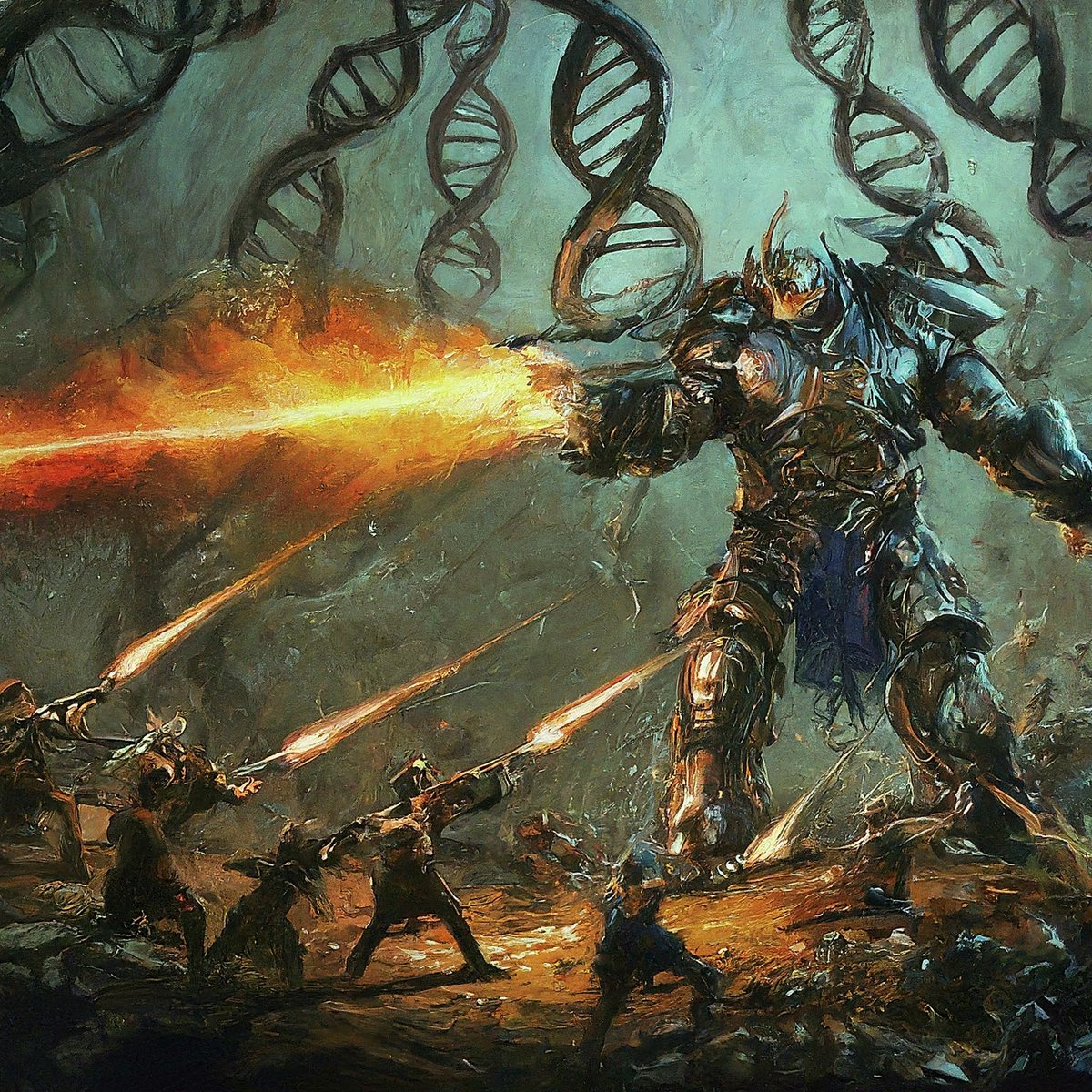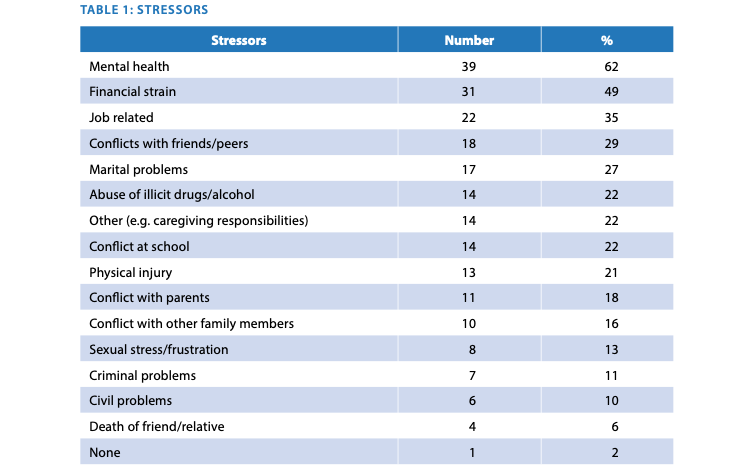How to get URL link on X (Twitter) App


 2. IOW, sex diffs in phenotypes are due to sex diffs in hormones acting on cellular hormone receptors, altering expression of (mostly) autosomal genes in numerous tissues.
2. IOW, sex diffs in phenotypes are due to sex diffs in hormones acting on cellular hormone receptors, altering expression of (mostly) autosomal genes in numerous tissues.https://x.com/TadegQuillien/status/1628092181465399312

 2. In 1966, 75 hunter-gatherer specialists met at the University of Chicago for a conference titled Man the Hunter, organized by Richard Lee and Irv DeVore, who were graduate students of Berkeley primatologist Sherwood Washburn.
2. In 1966, 75 hunter-gatherer specialists met at the University of Chicago for a conference titled Man the Hunter, organized by Richard Lee and Irv DeVore, who were graduate students of Berkeley primatologist Sherwood Washburn.

 2. The cell is the fundamental unit of life. Every thought in your head, every memory, every sensation, every metabolic process in your gut, every defense against infection, every (forgive me) breath you take, every move you make, every word you say, is a cellular process.
2. The cell is the fundamental unit of life. Every thought in your head, every memory, every sensation, every metabolic process in your gut, every defense against infection, every (forgive me) breath you take, every move you make, every word you say, is a cellular process.

 2. First, please read this excellent article on the Lynn dataset, which details its racist origins (Lynn: "predominantly white states should declare independence and secede from the Union")... statnews.com/2024/06/20/ric…
2. First, please read this excellent article on the Lynn dataset, which details its racist origins (Lynn: "predominantly white states should declare independence and secede from the Union")... statnews.com/2024/06/20/ric…

https://twitter.com/sapinker/status/18048619802530247252. Recently @dconroybeam penned an Op-Ed on the harmful use of cherry-picked EP research, citing examples of mass shooters linked to EP-inspired manosphere ideology. He called on EP to do more to "defend our work from misappropriation"
https://x.com/dconroybeam/status/1791183657564241931


 2. Genome sizes vary tremendously in ways that do not obviously relate to organism complexity, e.g., many fish and amphibians have huge genomes compared to mammals (note that the number of base pairs on the x-axis is on a log scale):
2. Genome sizes vary tremendously in ways that do not obviously relate to organism complexity, e.g., many fish and amphibians have huge genomes compared to mammals (note that the number of base pairs on the x-axis is on a log scale):

 2. The key theme is that HGs vary a lot, hence the word *Spectrum* in the subtitle, but in principled ways that are best understood in a human behavioral ecology (HBE) framework:
2. The key theme is that HGs vary a lot, hence the word *Spectrum* in the subtitle, but in principled ways that are best understood in a human behavioral ecology (HBE) framework: 

 2. Major points:
2. Major points:

https://x.com/ScienceAdvances/status/1324766023921373186?s=202. In the !Kung, for example, the owner of the arrow owns the meat, and men often use arrows borrowed from many others, including from women, who typically do not hunt. Lee (1979): books.google.com/books?id=9085A…


 2. Humans start off as a single fertilized cell that, over 9 months, develops into an intricately structured, 2 trillion cell infant, and over 20 years, into a 30 trillion cell adult.
2. Humans start off as a single fertilized cell that, over 9 months, develops into an intricately structured, 2 trillion cell infant, and over 20 years, into a 30 trillion cell adult.
 2. The Aka report having sex about 3 times a night, with some days of rest between (all data are self-reported). Here, these frequencies are converted to weekly for comparison with neighboring Ngandu farmers and the US:
2. The Aka report having sex about 3 times a night, with some days of rest between (all data are self-reported). Here, these frequencies are converted to weekly for comparison with neighboring Ngandu farmers and the US: 

 2. Slave trading forced Ngandu horticulturalists into contact w/ the Aka, with whom they live today, exchanging starchy foods for meat, honey & other forest products, which initially included ivory that was exported to global markets, increasing the status of Aka elephant hunters
2. Slave trading forced Ngandu horticulturalists into contact w/ the Aka, with whom they live today, exchanging starchy foods for meat, honey & other forest products, which initially included ivory that was exported to global markets, increasing the status of Aka elephant hunters 

 2. In the terminal Pleistocene & Holocene, Homo sapiens expanded out of Africa into somewhat genetically isolated populations in W, S, & E Asia, Oceania & the Americas pnas.org/doi/full/10.10…
2. In the terminal Pleistocene & Holocene, Homo sapiens expanded out of Africa into somewhat genetically isolated populations in W, S, & E Asia, Oceania & the Americas pnas.org/doi/full/10.10… 



 1. Conflict is a key concept in evolutionary approaches to behavior. Adaptive responses to conflict often involve costly behaviors, eg, fighting, which are NOT pathological!
1. Conflict is a key concept in evolutionary approaches to behavior. Adaptive responses to conflict often involve costly behaviors, eg, fighting, which are NOT pathological!
 2. Anthropological analyses of suicidality link many cases to (1) social conflict, and (2) a motive or goal to influence or rebuke antagonists, or seek redemption. Among the Amazonian Aguaruna, for example (Brown 1986):
2. Anthropological analyses of suicidality link many cases to (1) social conflict, and (2) a motive or goal to influence or rebuke antagonists, or seek redemption. Among the Amazonian Aguaruna, for example (Brown 1986): 

 2. Most depression is caused by adversity, and both are strongly linked to *conflict*. Assault is perhaps the most potent risk factor for depression. Other depression risk factors, like marital problems, are also tied to conflict. Table from Kendler et al. 1999:
2. Most depression is caused by adversity, and both are strongly linked to *conflict*. Assault is perhaps the most potent risk factor for depression. Other depression risk factors, like marital problems, are also tied to conflict. Table from Kendler et al. 1999: 


